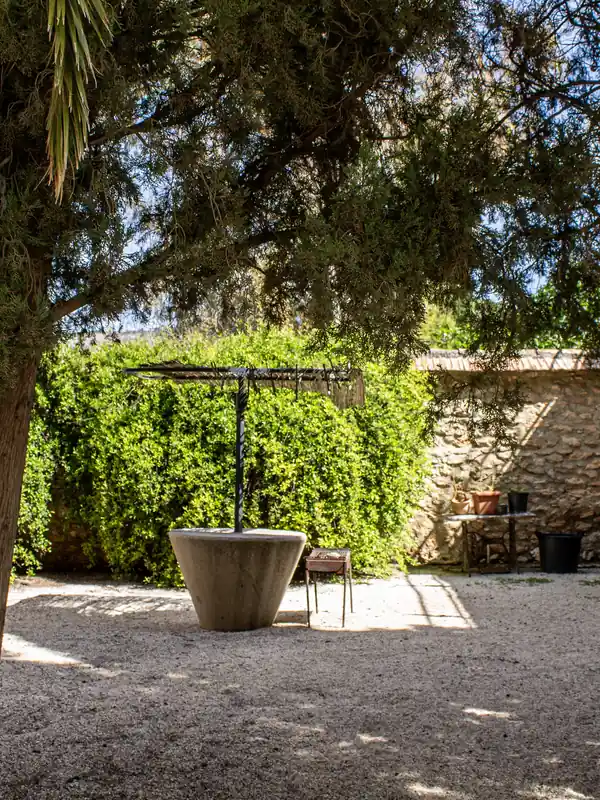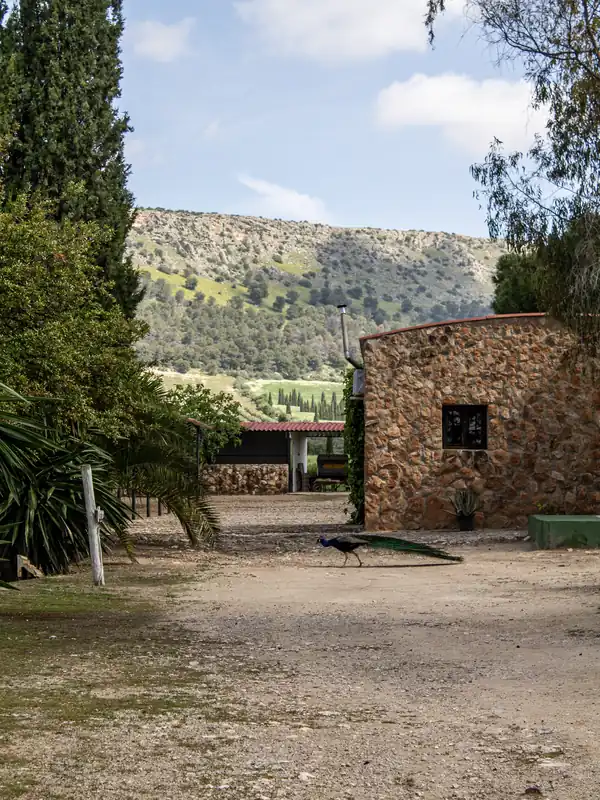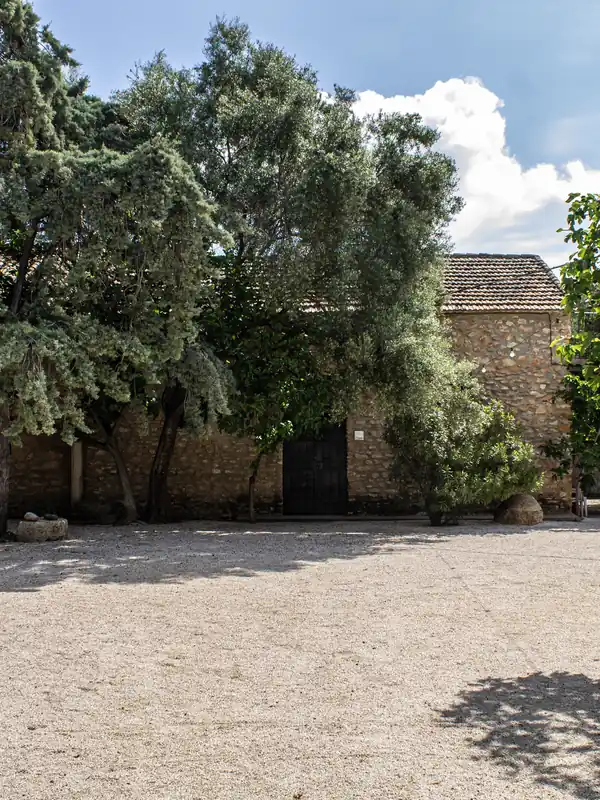Drug and Alcohol Rehab in New South Wales
Even if it seems frightening, seeking rehab is a courageous step towards healing. If you’re looking for drug and alcohol rehab in New South Wales (NSW), some options exist to match every journey. Across the region, services range from community-based support to intensive residential care.
Rehab Programmes in New South Wales
There are several types of drug and alcohol rehab in New South Wales, each offering different levels of support depending on your situation.


Residential Treatment for Substance Use
Residential treatment involves living at a treatment facility full-time. It provides round-the-clock support and is ideal for clients with long-term addictions and co-occurring disorders. This treatment option also offers a safe, structured environment for recovery so that clients can step away from daily triggers.
In a residential setting, clients follow a highly structured schedule. They may participate in a treatment that includes individual therapy, group counselling, holistic therapies, and educational sessions. All of these are combined so that you get the best chance at long-term recovery.
Outpatient Treatment for Substance Use
Outpatient treatment is a more flexible form of rehabilitation. Clients who attend this type of treatment can receive care while continuing to live at home and maintain their daily responsibilities. These treatment options include therapy sessions and other group support meetings.
While inpatient treatment is ideal for those with more severe addictions, outpatient treatment suits those with a strong support network and milder substance use challenges. These programmes can vary in intensity. Some may have standard weekly sessions, while others can engage in more structured day programmes, depending on the person’s needs.

Types of Treatment in Rehab
Detox Treatment
When people have become physically dependent on drugs and alcohol, a medically assisted detox is necessary. Dependence can result in withdrawal symptoms, such as tremors, anxiety, nausea, or seizures. These symptoms can range from mild to severe, depending on the substance used and how long a person has been using the substance.
Because these symptoms can be dangerous, detox is often carried out in a clinical or residential setting with 24-hour monitoring. Detox also helps stabilise the body so that it’s ready for the next steps of treatment. It’s not a complete treatment by itself, so it’s usually followed by comprehensive addiction treatment.
Mental Health Treatment
Mental health treatment focuses on diagnosing, managing, and improving different mental health conditions. Addressing issues like anxiety, depression, or trauma alongside addiction can improve outcomes. This type of treatment is suitable for those struggling with persistent mental health issues that affect their daily lives.
Mental health treatment often includes a combination of therapies such as cognitive behavioural therapy (CBT), medication management, psychoeducation, and holistic practices like mindfulness or art therapy. Through these treatments, clients can improve their quality of life and develop coping strategies for long-term wellbeing.
Dual Diagnosis Treatment
Dual diagnosis treatment supports people who struggle with both a mental health condition and addiction. Since the combination of the two treatments makes treatment more complicated, this approach ensures that both are treated at the same time. Dual diagnosis also helps prevent relapse and improves long-term recovery.
This type of treatment typically involves a personalised plan that combines different kinds of therapies. Clients can better understand the root causes of their behaviour. Dual diagnosis also equips them with the tools needed to manage both their mental health and substance misuse in a healthy, sustainable way.
Holistic Treatment
During holistic treatment, clients can engage in an approach where they can heal as a whole. These types of treatments are often used to complement traditional therapies for a more comprehensive and personalised treatment experience. There are many approaches used during holistic therapy, such as yoga, meditation, massage, nutritional counselling, and equine therapy.
Holistic treatment is great for those who want a more natural and balanced approach to recovery. Programmes focused on wellness typically integrate these approaches into treatment. Through these therapies, clients can reduce stress and improve emotional regulation for healthier lifestyle habits.
Therapies and Modalities
At the core of addiction and mental health, treatment are the therapies and modalities used to manage emotions and develop healthier coping strategies. Evidence-based treatments such as cognitive behavioural therapy (CBT), dialectical behaviour therapy (CBT), and EMDR therapy are highly important for lasting recovery and personal growth.
Therapies and modalities are suitable for anyone facing addiction, mental health conditions, or both. They are often tailored to suit each person’s background, goals, and situation. Combining various modalities also allows clients to build better self-awareness. They also help improve relationships and gain practical strategies to maintain long-term recovery.

How Much Does Rehab Cost in New South Wales?
Standard 30-day residential rehabilitation programmes in Australia typically cost around AUD $4,000 to $15,000. The cost goes up as there are additional facilities and amenities. For high-end treatment clinics with luxury facilities, clients can pay around AUD $25,000 per week. Outpatient services are less expensive, with costs ranging from AUD $60 to $180 per hour.
These figures vary depending on the centre’s location, the level of care provided, and whether specialised therapies such as dual diagnosis or trauma-informed care are included.
The Addiction Problem In New South Wales
Substance dependence affects many people across the state of NSW. According to recent data from the Australian Institute of Health and Welfare, approximately 17.5% of people in NSW reported using an illicit drug in the past 12 months. Cannabis and cocaine are the most commonly used substances.
Reports also show that there were 78,208 alcohol and other drug-related hospital admissions among NSW residents. From this number, around 52,407 cases were related to alcohol, and 34,636 were related to other drugs. These statistics are alarming, and they require comprehensive strategies and accessible treatment services to overcome.

Drug and Alcohol Rehab Centres in New South Wales
With many people in NSW struggling with substance abuse, many treatment centres offer programmes treatment of addiction to alcohol and other drugs. Some of these facilities include:
SOUTH PACIFIC PRIVATE
Situated on the Northern Beaches, South Pacific Private offers treatment for addictions, trauma, and mental health issues. They have an experienced team providing treatment for over 30 years.
24 Beach St, Curl Curl NSW 2096, Australia
FOUNDATION HOUSE
Foundation House offers 28-day inpatient residential programmes for those struggling with substance abuse. They also provide gambling treatment in addition to substance dependence treatment.
502 Wharf Rd, Lilyfield NSW 2040, Australia
THE SYDNEY RETREAT
The Sydney Retreat offers an innovative residential recovery programme for clients. They use a non-clinical, mutual-help approach in a supportive and educational setting.
223 Trafalgar St, Stanmore NSW 2048, Australia
The Cabin Sydney
The Cabin Sydney is a specialist addiction treatment facility located in Edgecliff. They have clinical professionals who offer proven, effective, and holistic addiction treatments for clients.
506/180 Ocean St, Edgecliff NSW 2027, Australia

Free Local Resources in New South Wales
In addition to several private rehabs in NSW, residents can also receive help from different free local resources. These resources include the following:
ALCOHOL AND DRUG INFORMATION SERVICES
ADIS is a confidential, 24/7 telephone counselling service that offers support and information for those affected by substance abuse in NSW.
NARCOTICS ANONYMOUS
Narcotics Anonymous uses the same 12-step programme as Alcoholics Anonymous. Meetings are held in different parts of New South Wales, where attendees can find community and support for sobriety.
SMART RECOVERY
During SMART Recovery meetings, people recovering from addiction can share positive experiences and challenges from their journeys. These meetings help build motivation, cope with urges, and develop problem-solving skills.
Is Private Alcohol and Drug Rehab the Best Option?
Many free addiction support services in New South Wales offer support for those who need care. However, they may come with long waiting lists and limited availability for clients. Since they’re more accessible, there is a higher chance that you won’t immediately get the help that you need to recover.
Private facilities often offer a better and wider range of therapies and medical care. In addition, these private facilities also integrate holistic treatments in a structured environment. The lower staff-to-client ratio in private treatment can offer more personalised attention and consistent support for people in recovery.

Why Choose Us Instead of a Drug and Alcohol Rehab in New South Wales
While there are several resources for alcohol addiction treatment in New South Wales, going through treatment in Sierra Recovery can provide a better edge.
Escape From Triggers
Travelling to Spain, away from Australia, removes you from the places and pressures that may have fuelled addiction. Whether you need a break from your everyday life or the people around you, this distance supports focus and emotional healing in a fresh environment.
Personalised and Customised Care
At Sierra Recovery, we prioritise individual therapy and small-group settings to provide customised care for every client. Our team is here to provide the time, focus, and attention each person deserves for effective and long-lasting recovery.
Peaceful Mediterranean Setting
Sierra Recovery, located in Malaga, is situated near the Spanish coastline. In this location, clients can enjoy sunshine, serenity, and natural beauty. Going to alcohol and other drug treatment in our facility means healing in a setting that can facilitate personal transformation.
Affordable Private Care
Despite being abroad, our all-inclusive programs are often more affordable than some of the private rehabs located in New South Wales. Although our services are offered at a lower cost, we make sure that we don’t sacrifice quality or comfort.
Confidential and Private Treatment
Discretion is essential for many of our clients, as we know that many patients may be hesitant to receive treatment due to the stigma attached to it. Sierra Recovery’s private location in Málaga ensures full confidentiality so that clients can have a quiet, judgment-free space to heal.
Holistic Therapies for Recovery
During treatment at Sierra Recovery, clients can enjoy different holistic therapies for recovery. One of our standout holistic therapies is equine therapy. This kind of treatment offers a unique opportunity for emotional and physical healing through interacting with horses.
How to Get to Our Treatment Centre
Since Sierra Recovery is located in Spain, you’ll need to fly to get to our rehab facility.
From New South Wales to Malaga
Flying from New South Wales to Malaga: Your journey will usually begin at Sydney Airport (SYD) and end at Málaga-Costa del Sol Airport (AGP). Currently, there are no direct flights from Sydney to Málaga, so expect one or more stopovers.
Free Pick up Service
To make your journey as smooth as possible, we offer a complimentary pick-up service from Malaga Airport. Our team will be there to greet you upon arrival and ensure a comfortable transfer directly to our rehab facility, located just an hour away.
What To Expect During Rehab Treatment
A rehabilitation programme will have a structured and supportive environment that can help you overcome and manage addiction. At Sierra Recovery, clients receive personalised care 24/7. Upon arrival, an initial assessment helps the team develop a treatment plan that addresses a client’s needs and goals. This treatment may include medical detox, individual therapy, group counselling, and other holistic therapies.
During residential rehab, you can expect to engage in daily routines that promote healing and structure. There will be a mix of therapeutic sessions, healthy meals, and restorative activities during your time in treatment. You can also expect a safe, non-judgmental environment that will make you feel safe to share your feelings and emotions. Each person in the rehabilitation facility will be guided through their recovery journey with compassion and care.


What Happens After Rehab?
After attending a residential rehabilitation programme, you will need a comprehensive aftercare to help maintain long-term sobriety. This rehabilitation service may include ongoing therapy sessions and support group recommendations so that you can continue to rebuild your life after treatment.
Aftercare aims to ease the transition back into daily life. Since you’ll learn different coping skills during treatment, it helps reinforce those strategies while providing extra support as you face real-world challenges. The continued structure and encouragement you receive during aftercare can make all the difference in maintaining sobriety and achieving long-term success.
Choose Us Over a Rehab Centre in NSW
It can be frightening to think about being far from your familiar environment, but Sierra Recovery is here to make treatment as welcoming as possible. Our team has years of experience providing treatment that can help you achieve a life free from harmful substances. We’re always a call or email away, so don’t hesitate to reach out.
Frequently Asked Questions
Is rehab covered by insurance in New South Wales?
Some private health insurance policies can cover part of your treatment costs. However, the coverage will largely depend on your policy and level of extras.
How long does rehab usually last?
Most inpatient rehab programmes last between 28 to 60 days. Some programmes can be extended to 90 days when needed. Some people may benefit from longer-term support, while others may only require a shorter stay or outpatient care.
Can I still work or study while in rehab?
Since residential programmes require you to take time away from your responsibilities, it might not be possible to work or study while receiving treatment. An outpatient programme may be more suitable for this situation.
Do I need a referral to enter rehab?
It depends. Some facilities accept self-referrals, but others may require referrals from a doctor or mental health professional. For public services, assessments and referrals through a local health district or drug and alcohol service.
Is it better to go to rehab locally or overseas?
Both local and international rehabs have their benefits. Many people find that going to a local facility is convenient. On the other hand, travelling for treatment can provide distance from triggers and provide space for healing in a distraction-free setting.
What support is available after rehab?
The support available after treatment usually depends on the facility. Many facilities offer aftercare support, wherein you receive follow-up counselling, online support, and relapse prevention planning services.